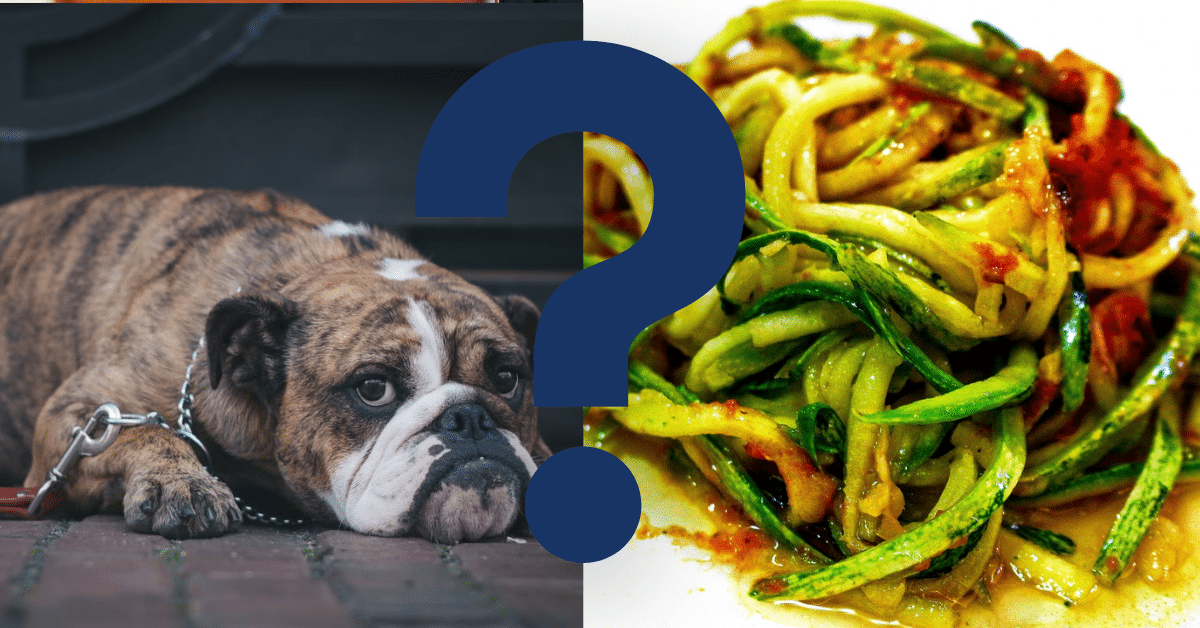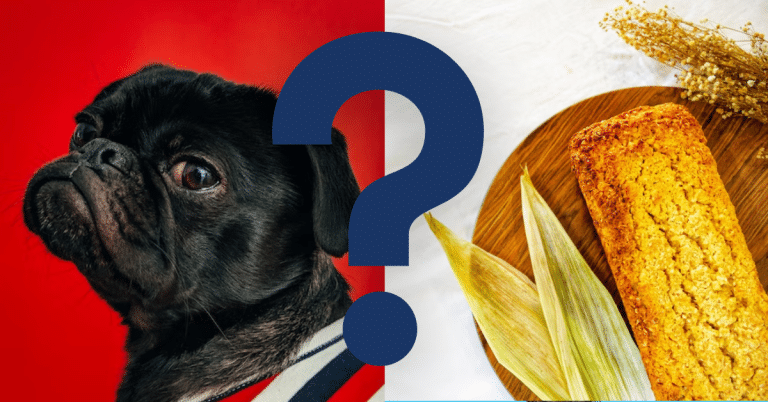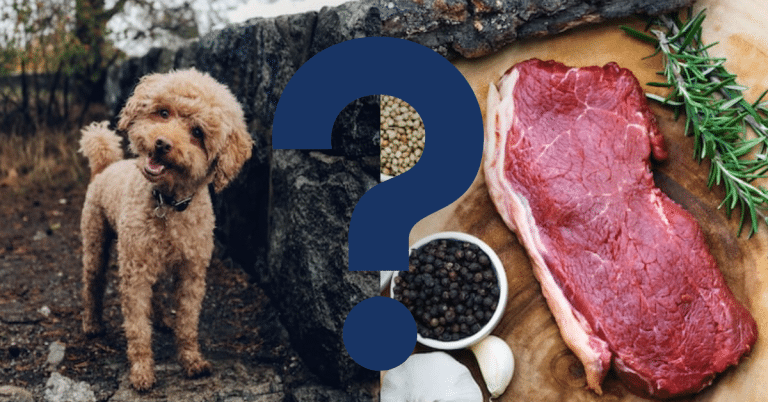Can Dogs Eat Spaghetti Squash? A Vet’s Opinion

A yellow, oblong vegetable called spaghetti squash can be used in place of pasta because when it is cooked, it forms strands that resemble spaghetti, but can you feed spaghetti squash to your dog?
Yes, dogs can have spaghetti squash in moderation, but it shouldn’t make up a large portion of their diet. Although it is not poisonous, dogs lack critical nutrients, and if they overeat, they could have intestinal problems. To protect your dog’s health and safety, speaking with a veterinarian before introducing new items to their diet is best.
Benefits of spaghetti squash for dogs
While it’s okay for dogs to eat spaghetti squash in moderation, it’s vital to remember that it doesn’t positively impact their health. Unlike several very nourishing vegetables, spaghetti squash is relatively low in the vital nutrients that dogs need.
Spaghetti squash is best for dogs since it contains few calories, making it a healthy treat for overweight or obese canines. The vegetable also has fiber, which can help digestion in modest doses. To achieve their nutritional requirements, however, dogs mostly need a balanced diet of meat and other dog-friendly plants. As usual, it’s advisable to consult a veterinarian before adding any new food to your dog’s diet to be sure it meets its unique health conditions and dietary needs.

How to safely give spaghetti squash to dogs
To prevent any potential health problems, it’s crucial to feed spaghetti squash to your dog in a safe manner. To safely add spaghetti squash to your dog’s food, follow these instructions:
Introduce In Small Portions
Begin by giving a few cooked, basic spaghetti squash. Watch for any adverse reactions or digestive problems in your dog. You can progressively raise the amount if there are no issues but always use moderation.
Cook It Completely
Never give your dog raw spaghetti squash. Always boil it first. Raw squash can be challenging to digest for dogs and cause digestive problems.
Simple Preparation
Don’t season, sauce, or spice the squash in any way. Due to their sensitive stomachs, dogs can be harmed by some seasonings. Serve the squash unadorned and without any extras.
Remove The Seeds And Skin
Remove the spaghetti squash seeds and skin before giving them to your dog to avoid giving them to them. The skin might be problematic for them to digest, and the seeds can be a choking hazard.
Mix With Regular Food
Mix little spaghetti squash with their usual dog food to include it in your dog’s diet. It ensures your dog will still get the nutrients from a balanced diet.
Observe For Adverse Reactions
After introducing spaghetti squash to your dog, keep a tight eye on him to check for allergies or food sensitivities. Squash, among other foods, may cause allergies or sensitivities in some dogs. If your dog exhibits negative responses like vomiting, hives, or itching, stop administering medication immediately and call your veterinarian.
Serve As Treat
Serving spaghetti squash to your dog should be a special treat, not a daily food. It ought to be provided as an extra reward or supplement.
Consult Your Veterinarian
Speaking with your veterinarian before introducing new food to your dog’s diet is always wise. They can offer advice based on your dog’s nutritional requirements, health status, and dietary restrictions.
Although spaghetti squash is healthy for dogs to eat in small amounts, it doesn’t have many health advantages. Your dog will receive the vital nutrients they require for a long and happy life from a well-balanced diet of premium dog food supplemented with veggies suitable for dogs.
Will spaghetti squash make a dog sick?
When served in moderation and prepared correctly, spaghetti squash is usually safe for dogs. Individual allergies and digestive disturbances are still a possibility. If a dog consumes spaghetti squash in excess or if they have a particular sensitivity, the following illnesses or problems could occur:
Digestive Upset
An upset stomach can result from overeating new food and cause symptoms like vomiting, diarrhea, or gas.
Choking Hazard
Dogs may suffocate if the squash is improperly prepared by leaving the seeds in or cutting them into huge bits.
Gastrointestinal Blockage
In rare instances, if a dog consumes large portions of spaghetti squash or rough skin, it could result in a gastrointestinal blockage and necessitate medical care.
Allergic Reactions
Certain foods, especially squash, may cause allergic responses in some dogs. Itching, hives, swelling, or breathing problems are all allergic reactions.
Pancreatitis
Despite the comparatively low-fat content of spaghetti squash, eating too many fatty meals can lead to pancreatitis, a painful and dangerous pancreatic inflammation.
Dietary Imbalance
Because spaghetti squash lacks some critical elements dogs require, it may cause a nutritional intake imbalance in dogs if it accounts for a sizable portion of their diet.
Serving spaghetti squash in small portions, cooked thoroughly and without any additional flavors or sauces, is essential to reducing the risk of illness. Always watch for any symptoms of an allergic response in your dog, and stop giving it spaghetti squash if anything goes wrong. Remember that spaghetti squash shouldn’t be a regular part of your dog’s diet, only a special treat. Always consult your veterinarian before adding new items to your dog’s diet.
Can Dogs Eat Spaghetti Squash Variations?
Generally speaking, some varieties of spaghetti squash are acceptable for dogs to eat, but it’s essential to be sure they are. The most secure option for dogs is plain, boiled spaghetti squash. Please don’t feed them any variants with poisonous substances or foods toxic to dogs.
Here are a few dog-friendly spaghetti squash variations:
- The safest and best choice for dogs is plain, boiled spaghetti squash. It should be properly cooked and served without sauces, spices, or seasonings.
- Combining cooked spaghetti squash with other dog-safe vegetables like carrots, green beans, or peas can give their meal more variety and nutrition.
- Combining spaghetti squash with cooked, lean meat like chicken or turkey can produce a balanced and high-protein dish.
- If your dog enjoys spaghetti squash, you can occasionally treat them to little bits of it. Remember that it should only be a small addition to their regular diet.
- To add flavor to your dog’s usual kibble, you can top it with cooked spaghetti squash. It will make mealtime more interesting for your dog.
It’s imperative to avoid spaghetti squash recipes that include hazardous or stomach-upsetting elements for dogs, such as onions, garlic, chives, or other spices. Avoid variants that contain cheese, butter, or any other high-fat or high-sodium components because these could cause digestive problems or other health issues in dogs.
As usual, you should speak with your veterinarian if you have questions or concerns about feeding your dog different spaghetti squash recipes. They can offer tailored guidance based on your dog’s dietary requirements and health status.

Vet’s Summary
The article addresses the advantages of feeding spaghetti squash to dogs and its safety. Although dogs can occasionally eat plain, cooked spaghetti squash, they need more nutrition. Removing the seeds and skin must be removed to prevent choking dangers, and spices should be avoided. Spaghetti squash shouldn’t replace a well-balanced diet, and any new meal should be introduced slowly to watch for any adverse reactions.
Given the minimal nutritional value of spaghetti squash for dogs, it is advised for owners to think about adding probiotic supplements to their pet’s diet. Probiotics can help dogs have healthy gut flora, improving their digestion and immune system. Probiotic pills can improve nutrition absorption and assist general gastrointestinal health because spaghetti squash may not naturally contain enough nutrients. However, owners should speak with a veterinarian before introducing new supplements to their dog’s diet to ensure it suits their pet’s needs and establish the proper dosage. Remember that a balanced diet and safe and helpful supplements will help your dog become healthier and happier.
Videos to watch
If you are wondering what related foods are good to give your dog, watch this:
And if you want to know what a dog can NOT eat, watch this:






